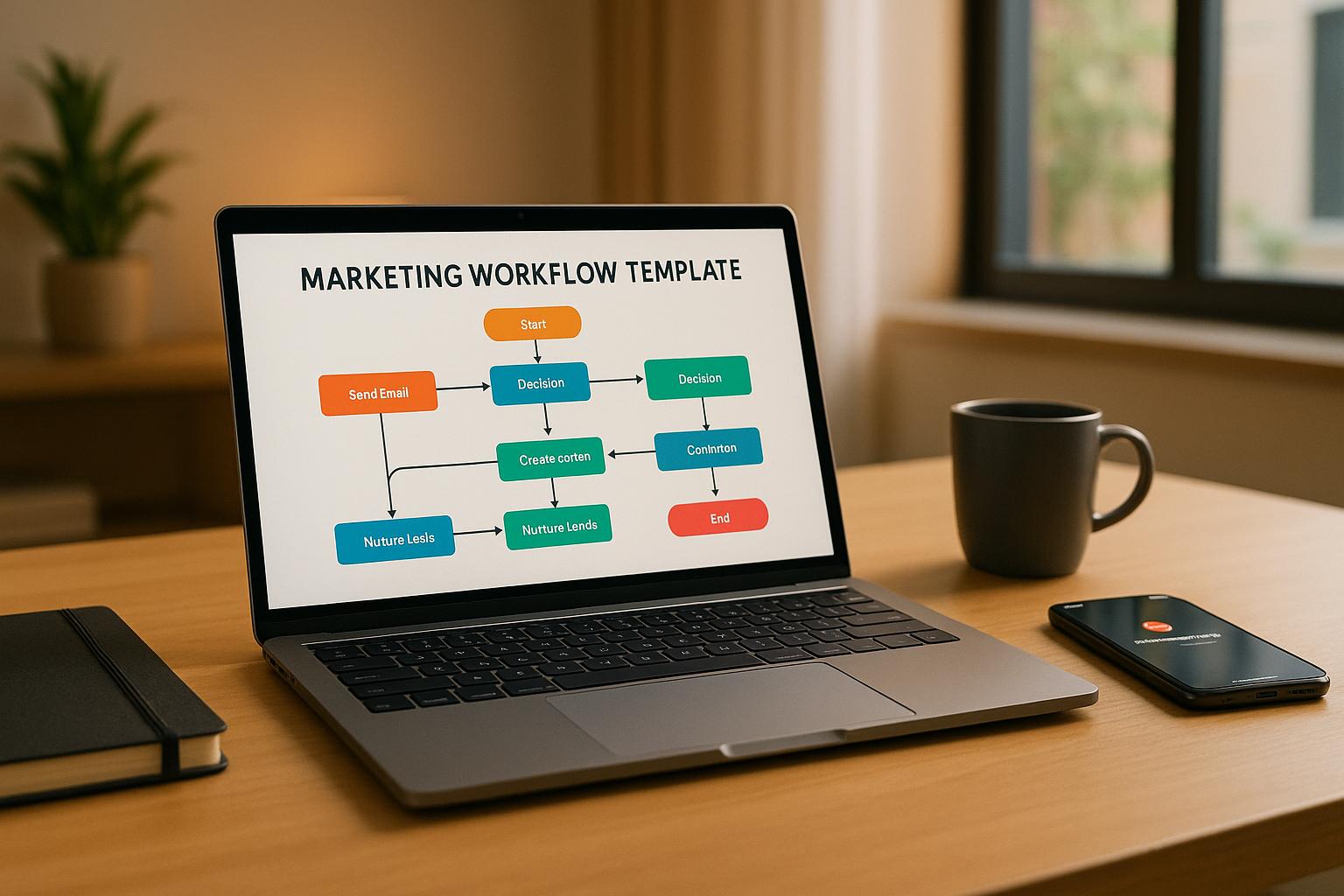Want to grow your real estate business? CMS integration can help.
A Content Management System (CMS) simplifies property listings, automates follow-ups, and improves lead generation. Here’s how it works:
- Centralized Management: Handle listings, campaigns, and client communications in one place.
- Lead Generation: Use AI tools to filter and nurture leads more effectively.
- Consistent Branding: Keep your brand message uniform across all platforms.
- Time-Saving Automation: Automate updates, follow-ups, and content distribution.
- Data Insights: Track engagement, ROI, and trends to improve strategies.
For example, a brokerage saw an 80% increase in organic leads by integrating 3D virtual tours into their CMS. Another marketplace tripled its organic traffic in two months.
CMS integration is a game-changer for real estate professionals looking to save time, attract better leads, and grow their business.
Why Does Integration Matter for Real Estate Success? #realtor
Understanding CMS Integration Basics
To tackle the challenges mentioned earlier, it’s essential to grasp the fundamentals of CMS integration.
What is CMS Integration?
CMS integration connects your content management system with tools like CRM platforms, email marketing software, and IDX/MLS databases. This connection creates a central hub for managing real estate marketing efforts.
When implemented effectively, it ensures data synchronization across platforms:
| Marketing Component | Integration Function |
|---|---|
| Property Listings | Automatically updates listings across websites, social media, and MLS |
| Lead Management | Sends captured leads directly to your CRM system |
| Content Distribution | Posts content across multiple channels automatically |
| Analytics Tracking | Combines data from all marketing activities into unified reports |
This streamlined data flow enhances lead generation and ensures consistent branding, laying the groundwork for improved marketing results. Let’s explore how CMS integration addresses common marketing challenges.
Common Real Estate Marketing Problems Solved
CMS integration tackles several major pain points faced by real estate professionals:
Managing Low-Quality Leads
With an integrated CMS, leads are automatically filtered, scored, and tracked based on engagement, helping agents focus on qualified prospects.
Improving Follow-Up Processes
The system automates follow-ups triggered by prospect actions, like repeated views of a listing, ensuring timely communication.
Maintaining Brand Consistency
Centralized brand assets, messaging templates, and automated content distribution ensure consistent branding across all channels.
Keeping Marketing Up-to-Date
It enables modern digital tools, like scheduling virtual tours automatically, to enhance the client experience.
Boosting Client Retention
Routine communications – such as personalized messages, market updates, and anniversary greetings – can be automated to strengthen client relationships.
"At Growth-Realty, we turn market challenges into opportunities for success." – Growth-Realty
Main Benefits of CMS Integration
Simplified Content Management
A CMS brings all your digital assets and property listings into one place, making it easier to manage everything from a single dashboard. This saves time and ensures consistency when creating, updating, and managing listings or marketing materials.
Here’s what it offers:
- Automated updates for property listings across platforms
- A centralized library for marketing assets with version control
- Easy distribution of 3D virtual tours
- Ready-to-use templates that align with your brand
This streamlined setup makes it easier to focus on generating leads, which we’ll cover next.
Improved Lead Generation
With CMS integration, lead generation becomes more efficient thanks to AI-powered tools and smart tracking. The platform simplifies how leads are captured and nurtured by:
- Monitoring engagement across multiple channels
- Delivering targeted content at the right time
- Turning casual viewers into qualified prospects
- Refining the lead qualification process
Consistent Brand Management
Keeping a unified brand voice is just as important as generating leads. A CMS acts as a hub for approved assets, ensuring everyone on your team stays on the same page. It helps by:
- Providing pre-approved content templates
- Enforcing brand guidelines automatically
- Syncing updates across all channels
- Offering tools for real-time collaboration
Actionable Marketing Analytics
A CMS also provides detailed analytics, helping you make smarter marketing decisions. It tracks key metrics like:
- Lead conversion rates and engagement levels
- How well your content is performing
- ROI for campaigns
- Trends in property interest
These insights help refine content strategies, improve lead generation, and maintain a strong brand presence, creating a cycle of continuous improvement.
sbb-itb-2f9da9d
How to Set Up CMS Integration
Getting your CMS up and running is key to improving lead generation and making your marketing efforts more efficient.
Review Your Current Marketing Tools
Start by listing all the marketing tools you currently use:
- Property management systems
- Email marketing platforms
- IDX/MLS integration tools
- Social media management software
- Analytics and tracking tools
For each tool, note what it does and where it falls short. Look for any manual tasks that could be automated. Once you’ve reviewed your tools, you’re ready to choose a CMS that aligns with your real estate marketing needs.
Choose the Right Real Estate CMS
When selecting a CMS, look for these key features:
- IDX/MLS integration
- Tools for managing property listings
- Lead capture and nurturing capabilities
- Marketing automation options
- A mobile-friendly design
| Feature Category | Key Capabilities |
|---|---|
| Property Management | Virtual tours, photo galleries, listing updates |
| Lead Generation | Form builders, landing pages, lead scoring |
| Marketing Tools | Email templates, social media integration, content scheduling |
| Analytics | Lead tracking, engagement metrics, ROI reporting |
Connect Your Tools to the CMS
Follow these steps to integrate your tools:
- Data Migration: Transfer property listings and other content into the CMS.
- API Integration: Link your CMS to MLS databases.
- Marketing Tool Setup: Connect email platforms and social media accounts.
- Analytics Configuration: Set up tracking tools and dashboards for reporting.
Once everything is connected, make sure your team knows how to use the system effectively.
Train Your Team
Proper training ensures everyone can make the most of the CMS.
Key Training Areas:
- How to navigate the CMS and complete daily tasks
- Creating and managing content
- Handling leads efficiently
- Understanding and using analytics
- Following security protocols
Offer role-specific training for agents and marketing staff. Plan regular refresher sessions to keep your team updated on new features and best practices.
CMS Integration Examples in Real Estate
Property Listing Management
With CMS integration, managing property listings becomes more streamlined. Agents and brokers can keep property details consistent and up-to-date across websites, social media platforms, and MLS systems. This centralized system makes updating listings easier while ensuring accuracy across all marketing channels.
Targeted Email Marketing
CMS integration also improves email marketing efforts. By using property data and tracking buyer behavior, the system can automatically segment audiences. This allows real estate professionals to send personalized email campaigns tailored to browsing habits and interaction history.
Digital Property Tours
CMS integration enhances how properties are showcased online, offering tools that improve the buyer experience. These features include:
- 360° Virtual Tours: Allow potential buyers to explore properties remotely.
- AI Virtual Staging: Helps buyers better visualize a property’s potential.
These tools create an engaging and immersive experience, turning casual viewers into serious buyers. Real estate professionals using CMS-powered virtual tours often see strong results.
Conclusion: Making CMS Integration Work
Integrating a CMS transforms real estate marketing into a data-focused, efficient process. When done right, it can significantly improve both marketing performance and lead generation.
For example, one major real estate marketplace saw its organic traffic triple in just two months after implementing a well-planned CMS integration strategy. This showcases the real-world impact of a properly executed approach.
To make the most of your CMS integration:
- Market Analysis: Use insights to spot new opportunities regularly.
- Campaign Optimization: Adjust your marketing strategies based on performance data.
- Creative Approaches: Experiment with fresh ideas and emerging technologies.
- Consistent Strategy: Focus on building a strong, lasting brand presence.
Keep systems updated and ensure your team is well-trained to get the best results. Regular updates and thorough training help your business stay competitive, establish expertise, and tap into new markets.
"As a real estate agent, I’ve had my share of challenges with various real estate marketing agencies, which made me quite skeptical about trying new services. I was referred to Growth-Realty by an acquaintance and had a terrific experience with them. From property showcases to targeted campaigns, everything was handled perfectly."



